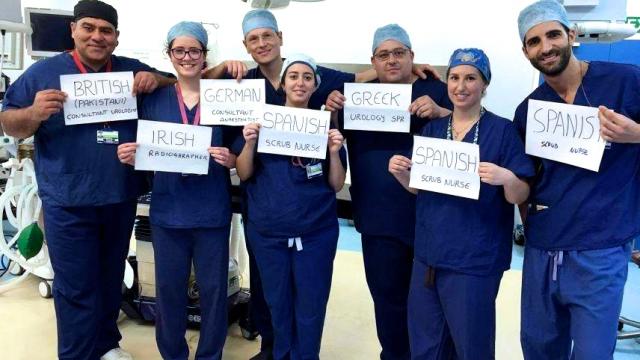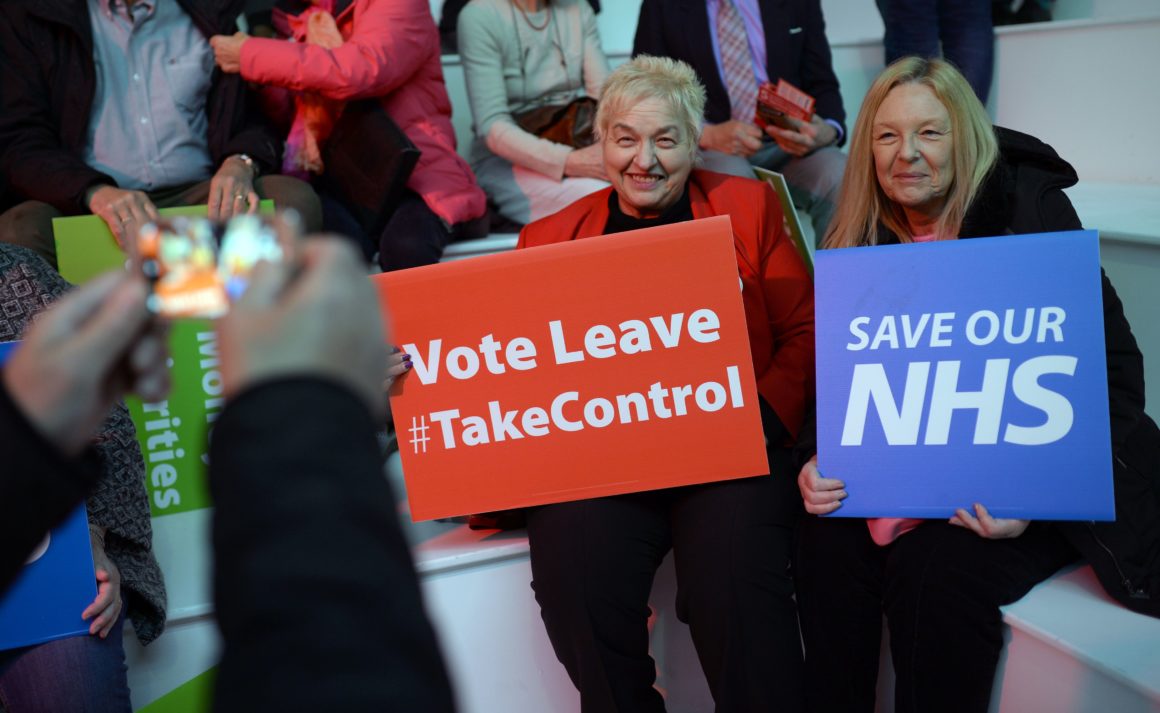
A recent study by the British Medical Association found that 12,000 medical professionals – 42 percent of those surveyed – who had trained in E.U. countries other than Britain felt unwelcome after the Brexit decision, and wished to leave their jobs and return to practicing abroad. With the National Health Service already under severe strain due to austerity measures, a mass exodus of health professionals from the U.K. could have dire consequences.
On Mar. 1, Britain passed a bill allowing E.U. nationals to remain in the U.K., but MPs have vowed to contest the changes once the Prime Minister triggers Article 50 and starts the Brexit process at the House of Commons later this month. The future is still uncertain for the many E.U. workers who live in Britain.
“While thousands of overseas and E.U. doctors work across the UK to provide the best possible care for patients, many from the E.U. are left feeling uncertain about whether they and their families will have the right to live and work in the U.K. after Brexit,” said BMA council chair Dr. Mark Porter. “At a time when the NHS is already at breaking point and facing crippling staff shortages, this would be a disaster and threaten the delivery of high-quality patient care.”
Porter stressed that this not just a case of losing NHS staff, adding, “The quality of patient care is improved where doctors have diverse experiences and expertise. The government must act now to ensure long-term stability across the healthcare system by providing certainty to medical professionals from the EU about their future in the UK.”
Last Tuesday, the General Medical Council put out a survey that found that 1,280 out of 2,106 doctors in Britain, or 60 percent, said they had considered leaving the U.K. Of those, 91 percent said Brexit was a direct influence on their decision. A GMC spokesperson told Occupy.com: “We were aware of the BMA’s survey results, and our own survey similarly showed that some doctors with European Economic Area qualifications who are practicing in the U.K. are considering leaving.”
Charlie Massey, the group's chief executive and registrar, added: “Brexit strengthens the case for reforming professional regulation, as it provides an opportunity to make progress in two distinct areas: improving the checks we can put in place to ensure all doctors practicing in the U.K. meet the same standards – whether they qualified in the U.K., Europe or elsewhere – and improving training for doctors by creating greater flexibility in postgraduate training.”
Dr. Birgit Woolley, originally from Germany, has been a general practitioner in the UK for 20 years. She told the BMA that “since the result of the EU referendum I feel increasingly uncertain about my future here, and am considering returning to Germany. It is unsettling that in a country that I have contributed to for 20 years and consider home, I am now seen as a foreigner and have to prove that I deserve to live and work here.”
Woolley said her patients are distraught that she might have to leave – regardless of the way they voted last year. “I feel supported by my patients, with even those that voted Leave telling me, ‘You can stay because you're a doctor. We like you. We didn’t mean you.’ But the reality is that the government does not appreciate what E.U. nationals like me have contributed to the U.K., and only sees us as bargaining chips.”
Occupy.com also spoke with a hospital doctor named Emilie, who is originally from France but has worked in the UK for the last five years. Emilie declined to give her last name for fear of speaking on the record, and said, “Frankly I am terrified about the future and very angry. I don’t want to uproot my family because I can no longer work here. I have lost old friends over the result of the Brexit referendum. Anyone who voted ‘Yes’ quite clearly, to me, didn’t think properly about the consequences of their actions.”
Emilie’s family, including her young children, are British nationals, with no desire to relocate to France or another country. “My children are at school, my husband has a job and can’t speak French. And our whole social lives are here too.”
Her case, like so many others, illustrate the importance of the Brexit law and how its impacts will ripple out across people's lives. It will not affect only doctors and medical professionals, of course, but people across the labor spectrum. The consensus is that teachers, service workers, journalists and ultimately the British public as a whole will suffer. At the time of writing, the official date of Brexit is set for March 15.
3 WAYS TO SHOW YOUR SUPPORT
- Log in to post comments
















